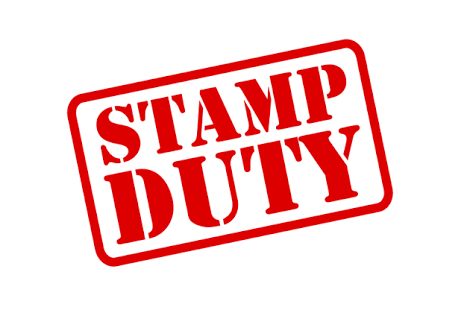Stamp duty is the tax that governments place on legal documents, usually in the transfer of assets or property. It is imposed on documents that are needed to legally record certain types of transactions. This includes Agreements, Contracts, Receipts, Memorandum of Understanding (MOU), Promissory notes, Insurance policies and others stipulated in the Schedule to the Stamp Duties Act
Stamp duties and other forms of tax are levied in order to raise money to fund government activities and projects. Under the Stamp Duty Act, stamp duty is payable on any agreement executed in Nigeria or relating, whatsoever, to any property situated in or to any matter or thing done in Nigeria. Instruments that are required to be stamped under the Stamp Duties Act must be stamped within 40 days of first execution.
Stamp duty is chargeable either at fixed rates or ad valorem (i.e. in proportion to the value of the sum being taxed), depending on the class of instrument and is levied onwritten or electronic transaction documents, as prescribed by the Stamp Duties Act (SDA), it is different from postage stamp which is administered by NIPOST for the purposes of delivery of items and documents
In Nigeria, stamp duty is imposed at the rate of 0.75% on the authorised share capital at incorporation of a company or on registration of new shares. All deposit banks and financial institutions are required to charge stamp duties of NGN 50 on every eligible transaction above N10,000. However, there are exemptions for transactions between accounts held by the same bank customer and for salary accounts.
Transactions chargeable for stamp duties include but are not limited bank deposit or transfer, loan agreement, Memorandum of Understanding (MoU) related to land, sales agreement, will, tenancy/lease agreement and all receipts.
The burden of payment of stamp duties whether fixed or ad-valorem is that of the beneficiaries of a contract, or Money Deposit Banks’ customers who transfer an amount of N10,000 and above from his account to another customer’s account.
It is the responsibility of Ministries, Departments and Agencies (MDAs), Money Deposit Banks (MDBs), Companies, Landlords, Executors, among others to ensure that service providers, contractors and tenants pay stamp duties due on agreements, receipts and other dutiable instruments
The Federal Inland Revenue Service is the authorised body for collecting stamp duties on dutiable instruments where such instruments are executed between a company and an individual, group or body of individuals, in line with section 4(1) of the Stamp Duties Act as amended by the Finance Act.
Failure to deduct or remit stamp duties into the Federal or State Stamp Duties Account attracts relevant penalties and interest as stipulated in the Stamp Duties Act, Cap S8, LFN 2004 (as amended).




